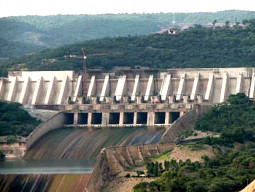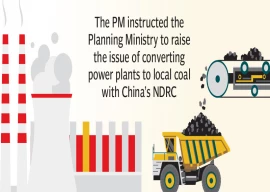
That economic development affects politics and vice versa are two beliefs that have been at the centre of academic discourse for a long time. The way politics and economics interact with each other was investigated with some thoroughness by a number of scholars in the 1960s. Among them was an economist, Gunar Mydral, who won the Nobel Prize in Economics for his efforts, a political scientist, Samuel P Huntington, who had a profound impact on Western thinking about Islam and a political-economist, Albert O Hirschman, who laboured hard to bring political science into economics and business management.
More recently, one sociologist, one political scientist and one economist have joined the ranks of these three scholars in analysing the process of economic and political change. The sociologist, Francis Fukuyama, is currently engaged in studying the development and decay of what he calls the “political order”. The other work to which I will make reference is by Daron Acemoglu, an economist at MIT, and James Robinson a political scientist at Harvard University, called Why Nations Fail.
Several ideas from the works of these analysts have relevance for understanding Pakistan’s economic and political development. Among the questions are: why has political and economic power remained concentrated in the hands of a handful of groups in Pakistani society? And why has the society resisted change that would take it towards modernisation?
Myrdal famously coined the word “the soft Asian state” to explain why in many post-colonial countries in Asia the state did not act as if it had the power and authority to overcome the interests of several strong vested groups. To allow so much power to be accumulated in so few hands was done by colonial rulers for the purpose of having well-entrenched groups in Indian society develop strong loyalty towards the British Raj. Shaken by the Great Mutiny of 1857, the colonial masters of India chose the Muslims of the northern provinces to shoulder some of their security burdens. They did this by bringing Punjabis and Pathans into the British Indian Army in large numbers, by allowing some members of the carefully identified communities of northern India become important players in the elaborate bureaucratic structure that was established and by developing a system of rewards to recognise those who showed great loyalty towards the British rule. In return, the rulers put on the books a large number of laws that protected Muslim landowners from losing their land to Hindu moneylenders. They also restricted the role of middlemen in agriculture to those the state favoured. By dividing Indian society into martial and non-martial races, the British allowed only a few communities to find employment in the armed forces.
Most of these groups were not particularly keen on the idea of a separate homeland for the Muslims of India. Once the idea of Pakistan became a reality, these groups devoted their immense energy and resources to protect their economic and political interests. They had little interest in developing the Pakistani state based on a rule of law. They kept the state “soft” so that it remained under their control. They, in other words, became members of what Acemoglu and Robinson call an “extractive system”. This is a system that has its own rules, very different from those that must govern a modern political entity. The main goal of the extractive systems is to extract as much political power and material wealth from the rest of the society as possible. In the Acemoglu-Robinson formulation on the other side of the politico-economic spectrum are the “inclusive systems”, which allow political and economic power to be very broadly shared. The extractive systems work on the basis of informal rules while the inclusive systems follow formal rules such as those embedded in the constitutions that modern societies write for themselves to regulate individual and community behaviour. Can societies transit from the exclusive to the inclusive state? Can this be done by an independent judiciary? Can elections be the way to bring about this change? I will answer these questions next week.
Published in The Express Tribune, August 28th, 2012.
COMMENTS (4)
Comments are moderated and generally will be posted if they are on-topic and not abusive.
For more information, please see our Comments FAQ












































@Prakash: You mean to say all islamic states are bound to differentiate among its citizens or any state based on religion is going to do so?
Terms "inclusive" and "extractive" are vague in the sense of the scope of their application. For example. according to another distinguished political scientist John Kenneth Galbraith, the industrial state can become extractive. In fact, he coined his hypothesis for US!! My point is that if colonial rulers set the stage for extractive state then who set the stage for US market based extractive state? To conclude, I think that such analysis can provide us only partial explanation of the current state. To get a complete we have to see into the mind of the society: how it has formed? From where it has taken its concepts of right and wrong? Morals, moraise, etc.
Excellent post! I have just finished reading Why Nations Fail and was a little disappointed to see that the authors did not turn their lens towards Pakistan. The book very clearly illustrates how inclusive economic institutions evolve from (a) a strong writ of the state and (b) pluralist political institutions (including, but not limited to, democratic rule).
I think that in Pakistan we are witnessing an evolving pluralism within the political institutions, but writ of the state is not yet well-established. In fact, there are strong forces that frequently challenge this writ, including multiple groups of insurgents, influential families, etc. Reigning these in and establishing the rule of law is therefore a prerequisite to achieving sustained economic growth. I remain very optimistic that a rapidly evolving urban polity will eventually set Pakistan on a virtuous cycle leading to inclusive institutions and growth.
Pakistan being an Islamic State, can never be an Inclusive state and bound to differentiate citizens on basis of religion.